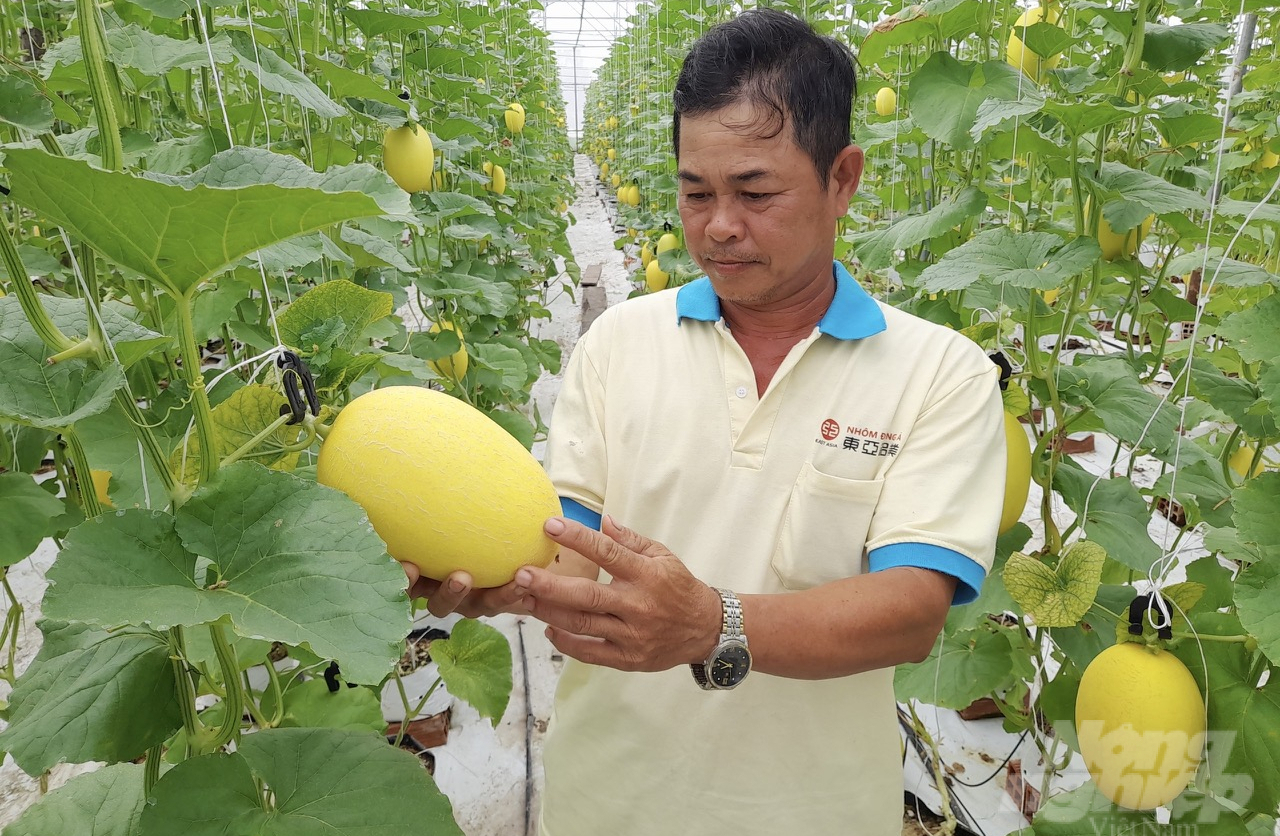November 25, 2025 | 15:29 GMT +7
November 25, 2025 | 15:29 GMT +7
Hotline: 0913.378.918
November 25, 2025 | 15:29 GMT +7
Hotline: 0913.378.918

Deputy Minister of Planning and Investment Do Thanh Trung emphasized that Vietnam's collective economic sector and cooperatives still have many challenges. Photo: Phuong Thao.
At the international conference "Cooperative Law 2023 and Policy Directions to Support Collective and Cooperative Economic Development," taking place on the morning of September 19, Deputy Minister of Planning and Investment Do Thanh Trung said that the Law on Cooperatives has been promulgated, amended and supplemented three times in 1996, 2003, 2012, creating an essential legal corridor for the development of cooperatives in Vietnam in recent times.
The number of cooperatives is constantly increasing, and the revenue and income of members and workers are gradually improving, helping to improve the economic life of member households, contributing to hunger eradication and poverty reduction, and stabilizing security politics for society.
However, the Deputy Minister of Planning and Investment acknowledged that developing the collective economic sector in Vietnam still faces many difficulties: the qualifications and capacity of the majority of staff are still weak, and the primary cooperative's infrastructure, materials, and techniques are poor; state policies do not provide much support.
"These challenges pose urgent requirements for the collective economic sector to change, promote advantages, and apply international experience to perfect development policies for the collective economic sector, cooperatives of Vietnam", Deputy Minister Do Thanh Trung emphasized.
Mrs. Nguyen Thi Tuyet Minh, Director of the German Cooperative and Raiffeisen Confederation (DGRV) in Vietnam, shared her experience. The Cooperative Law in Germany was the first cooperative law in the world, passed in 1889, laying the foundation for German cooperatives to develop over the past hundreds of years.
During the early period of its development, Germany established the "Prussian Treasury" in 1895 to provide credit for cooperatives' business activities. The Prussian Treasury regulates capital for cooperatives initially funded by the State with preferential interest rates. This is the predecessor of today's Deutsche Zentral-Genossenschaftsbank (DZ bank).
"The Cooperative Law in Germany all respect the rules of self-reliance, self-responsibility, and self-management of cooperatives. DGRV recognizes that supporting cooperatives with capital and policy framework in the early stages is essential for cooperatives to develop sustainably and become self-reliant in the future," Mrs. Minh shared.
Based on the development experience of the German cooperative sector, the Director of DGRV in Vietnam said that supporting cooperatives in the early stages of establishment plays a relatively important role in the cooperative's development. For Vietnamese cooperatives, credit support is significant to create leverage for cooperatives to develop without losing their inherent self-reliance.
Another international experience from neighboring Southeast Asian countries was also shared at the conference. Mrs. Jedsadaporn Sathapatyanon, Head of the Thai International Development Cooperation of the Cooperative Development Department, said that the cooperative movement in Thailand has a history of 107 years.

Cooperatives play an important role in the agricultural sector. Photo: Ho Thao.
The first cooperative was established in Thailand in 1916 to improve the livelihoods of small and indebted farmers affected by the transition from a subsistence economy to a commercial economy.
Since then, cooperatives have played an essential role in the agriculture, credit, and service sectors. Currently, the Cooperative Promotion Department (CPD) under the Ministry of Agriculture and Cooperatives of Thailand is responsible for promoting and strengthening the cooperative movement in the country.
Mrs. Jedsadaporn Sathapatyanon added that Thailand's CPD currently has 5 main projects to support cooperatives, including: Supporting knowledge and strengthening capacity through training and technical support activities; monitoring, institutionalizing, registering and maintaining the cooperative system; Encouraging and supporting cooperatives in production, collection, processing, marketing, and technology development; Support machinery and equipment to upgrade production and processing activities of the cooperative; Establishment of the Cooperative Development Fund.
Thanks to those support policies, as of December 2022, Thailand has 7,638 cooperatives, including 4,139 agricultural cooperatives and 3,499 non-agricultural cooperatives. Agricultural cooperatives are the most significant type of cooperative, with nearly 10% of the Thai population as members (about 66 million people by 2022).
Sharing the same experience from establishing a cooperative support agency, Mrs. Elizabeth Organo Batonan, Deputy Director of the Registration, Supervision and Examination Services, Philippine Cooperative Development Authority, said that the Cooperative Development Authority (CDA) of the Philippines is the leading host of practical support projects for cooperatives. However, other departments must also provide technical and financial support services for cooperative development.
The Philippine CDA Cooperative Development Authority has four main functions. First, the CDA has the authority to grant registration to cooperatives, issue compliance certificates, and perform inspection and examination functions.
Second, it performs the function of supporting dispute resolution, acting as an arbitration body between cooperatives. Third, the CDA supervises and performs judicial services for all types of cooperatives registered with the CDA. Finally, technical and other support and development interventions aim to develop cooperatives.
“The Philippines has more than 27 types of cooperatives due to many different business lines and fields of activity. Therefore, CDA also connects cooperatives with each other, or cooperatives with authorities by industry to receive appropriate support," Mr. Elizabeth Organo Batonan shared.
Translated by Tuan Huy

(VAN) In addition to strengthening the relationship between schools and enterprises, the Aus4Skills project expands opportunities for female students and people with disabilities to work in the transport and logistics sector.

(VAN) Nghe An is preparing policy, technical, and resource steps to participate in the forest carbon credit market.
/2025/11/25/1648-2-110733_532.jpg)
(VAN) From 2011 to 2023, Ca Mau province lost approximately 6,200 ha of coastal land and protection forests due to erosion, threatening many residential areas, infrastructure facilities, and production zones.

(VAN) Quang Ngai holds strong potential for carbon credits but needs a clear legal and policy framework to secure sustainable revenue from this resource.

(VAN) With its diverse ecosystem, Phu Quoc National Park plays a vital role in environmental protection and biodiversity conservation and serves as the core zone of the Kien Giang World Biosphere Reserve.

(VAN) Cooperation activities under the Aus4Skills program focus on: logistics professional development, competency-based training and assessment (CBTA), leadership innovation, and digitalization.

(VAN) Minister Tran Duc Thang has affirmed that the models developed by Que Lam Group serve as a practical foundation for the Ministry of Agriculture and Environment to direct wide-scale replication.